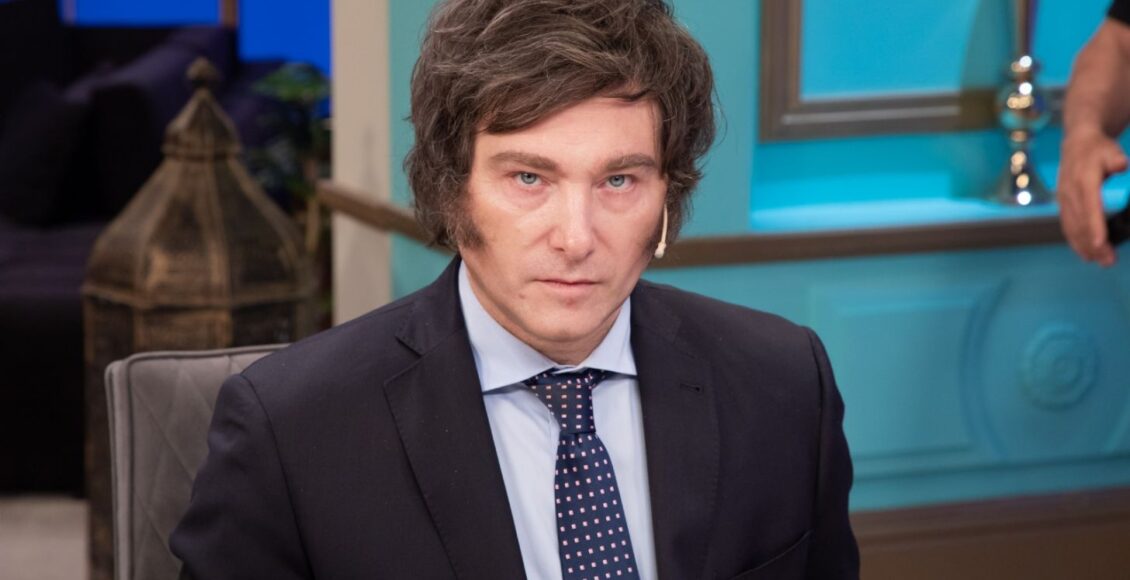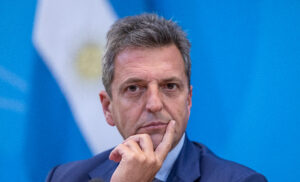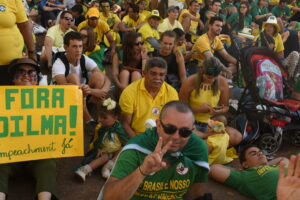Javier Milei: The Presidential Candidate that Has Shocked Argentina

As Argentina awaits its general election on October 22nd, a presidential candidate is already sending shockwaves through the country. In the primaries of August 13th, in which the candidatures of the upcoming election were decided, Javier Milei of the Libertarian Party received 30.05% of votes, the most out of every candidate, in what has been termed a shocking win. In the lead-up to the election, Milei has advocated for a radical change in the economy, including the dollarization of the central bank, and made bizarre claims such as that climate change is a “socialist lie.”
One of Milei’s strongest opponents is Sergio Massa of the Union for the Homeland, a Peronist coalition that is based on the ideology and policies of former President Juan Perón (president 1946 -1955 and 1973 -74). Peronism typically represents a combination of labourism (historically attracting many from the working class), and nationalist values, and has been at the forefront of Argentinian politics since its emergence. Massa is the Minister of Economy under current president Alberto Fernández and given that Argentina has been experiencing record inflation — a rate of 138% as of October — the decline in support for Peronism is unsurprising. It appeared as if voters would organize themselves into a division between the center-right (with candidate Patricia Bullrich, part of the Together for a Change coalition that came second in votes), and the center-left with Peronism. Discontent for both was certainly expected, including in the form of apathy; under 70% voted in the primary elections, the lowest since they began a decade ago. But although a number of Milei’s voters may align with his proposals (for example, Milei has appealed to social conservatives by advocating against the law that legalized abortion in 2020), the level of his success has been astonishing. It appears as though he has emerged from the profound disillusionment among Argentinians.

40% of Argentinians now live under the poverty line as inflation continues to devastate the cost of living. Soup kitchens are over capacity as households struggle to buy enough food for three meals a day. Business owners are unable to keep up, with most restaurants fully transitioning from physical menus to QR codes due to the daily recalculation of prices. Even the middle class can no longer afford luxuries such as owning a car. Overall, prospects of social mobility are looking dim. This problem, however, is nothing new and is a symptom of the chronic inflation that the country has faced for the last decades, including a hyperinflation exacerbated by the Latin American debt crisis in the 1980s that tapered in the early 90s and is soaring once again. As historian Pablo Pryluka puts it in an interview for Jacobin, although this persistent nature has made “people normalize inflation, as many Argentines have, it breeds frustration and political disenchantment.”
In fact, much of the young generation, who have no memory of a stable economy, are Milei’s core supporters. A third of the country’s voters are under 29, and receive much of their information on social media. Milei’s TikTok has amassed millions of followers, more than any other candidate, and is managed by 21-year-old Eugenia Rólon and 22-year-old Iñaki Gutiérrez. Milei has also inspired his own youth group, Generación Libertaria, whose former leader, Mila Zurbiggen, spoke with openDemocracy: “My generation’s outrage is very deep. It has a profound disgust for politicians. I think Javier [Milei] has been able to channel this rejection very well.”
Milei’s proposal to replace the Argentine Peso with the USD is the principal reason why his primary election win was a shock to many political analysts. Although three other countries in Latin America (Ecuador, El Salvador, and Panama) have already dollarized their central bank, it has never been attempted in an economy as large as Argentina’s. Many fear and have stated that the country is unprepared, including former IMF official Alejandro Werner, but perhaps it is only this radical shift and its aspirations that can curb people’s discontent.
Many have also noted the similarities between Argentina and its next-door neighbour. Brazil’s former leader, Jair Bolsonaro, congratulated Milei after the primary elections and stated they had many things in common, including their defence of private property, the free market and the right to bear arms. Most interestingly, Bolsonaro’s four-year presidency, which ended in 2022, followed a historic corruption scandal in the federal government. Ex-president Dilma Rousseff, member of the left-wing Workers’ Party (PT), was impeached from office in 2016, with allegations of her involvement and other forms of monetary misconduct. Upon Bolsonaro’s win, supporters referenced this scandal. Amongst them was 23-year-old Maicon Mesquita, who told the Guardian: “We are happy. We want change. He will be a president who has no involvement at all in corruption.”

Although growing popularity for right-wing figures has followed periods of political grievances, the same can be said about the opposing forces. In Brazil, Lula da Silva, a member of PT, was re-elected (he had previously been president between 2003 and 2011) after approval for Bolsonaro declined. Many refer to his negligent handling of the pandemic, which left over half a million Brazilians dead, as the reason for this result. This cyclical movement between left and right is a historical pattern in Latin America, even travelling to the extremes. In Argentina, this has involved the rise of Peronism, a military coup and subsequent dictatorship from 1976 to 1983, democratization, a further rise in Peronism and its sub-branches, and thenceforth.
However, Milei differs from many of his counterparts. While Bolsonaro served in Brazil’s army for more than a decade and was a member of the Chamber of Deputies for nearly three, he garnered a loyal support base of like-minded fans. Milei is a novice in the political realm, representing an ‘outsider’ and force of rebellion against all institutional failures. He has even received votes from Peronistas, which, as political scientist Valeria Brusco tells CBC News, “You could say that’s ideologically impossible, but it happened.”
But what if he fails to improve the country’s standards of living? Opponents are already profoundly concerned with his approach to social policies. Thousands, organized by national feminist groups, are already protesting his anti-abortion proposals. Others are most affected by a potential end to various social welfare programs because, according to Milei when he took a dig at Pope Francis on Twitter, “Jesus didn’t pay taxes.” Many of his supporters, though, are optimistic and want a short-term improvement due to the urgent cost of living crisis. In a manner typical of populists, Milei has promised that dollarizing the economy will be ‘super easy.’ If he fails to deliver, approval rates will be especially volatile, given that, unlike many popular politicians, he lacks a distinct demographic of support; young and old, rich and poor support him alike. In that case, the country will most likely fall back upon its cyclical nature of disillusionment. Milei may be a ‘shocking’ character, but is his destiny much different?
Edited by Darius Jamal.
Featured image is licensed under CC BY-SA 2.0.
